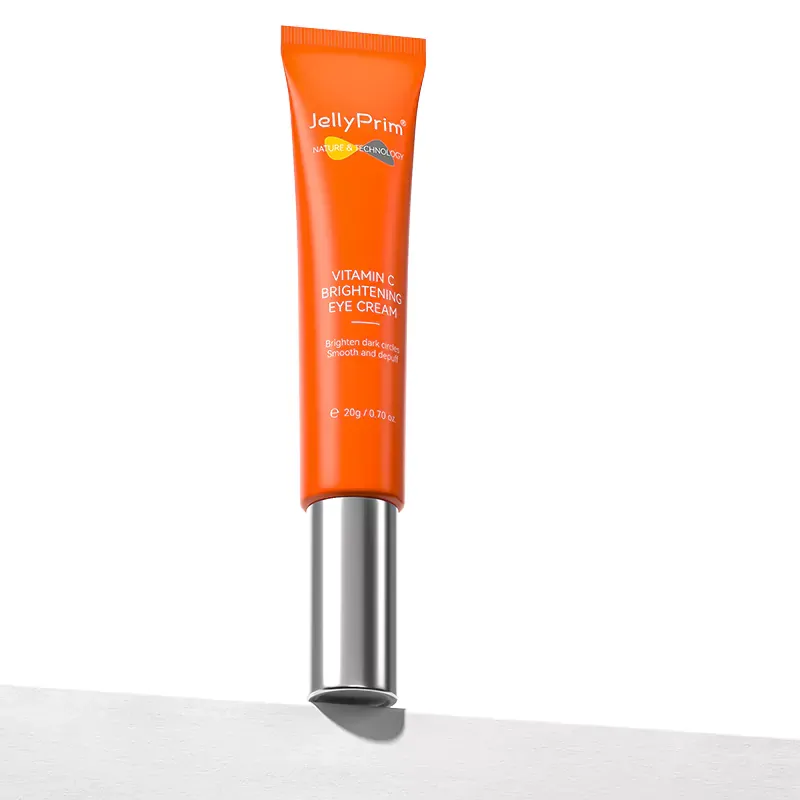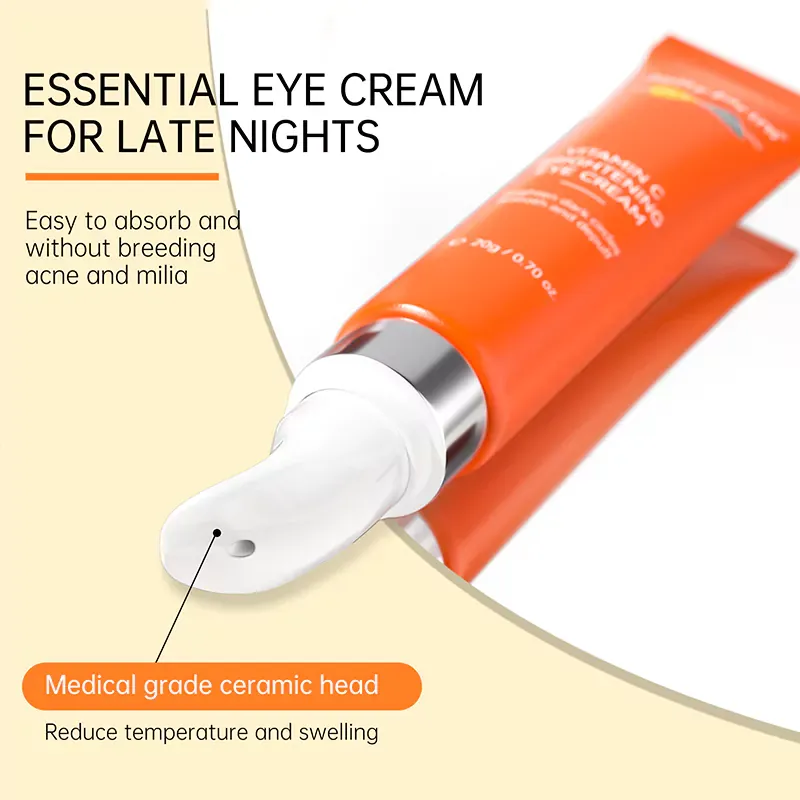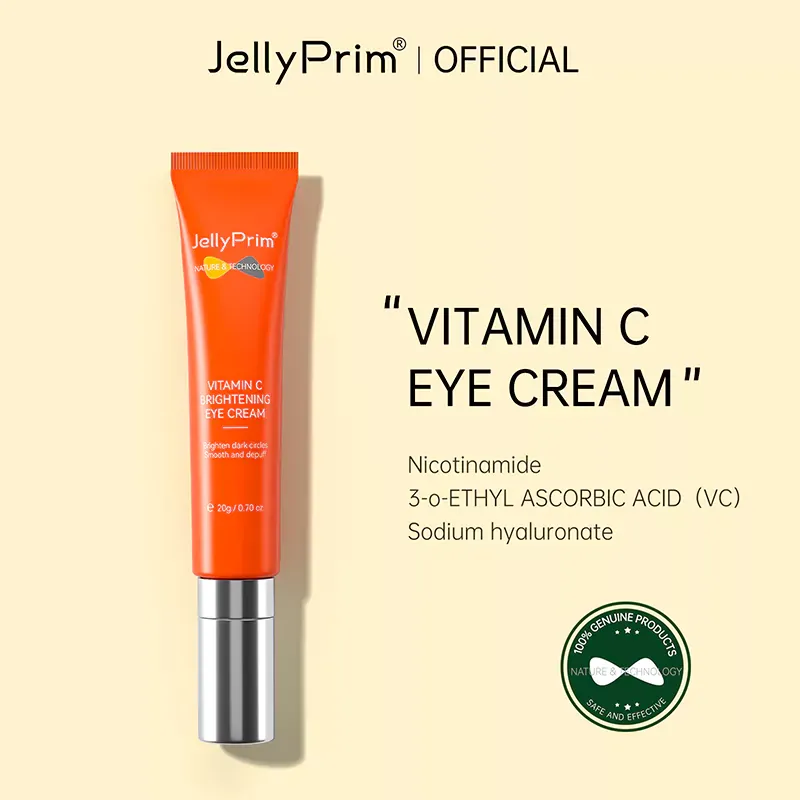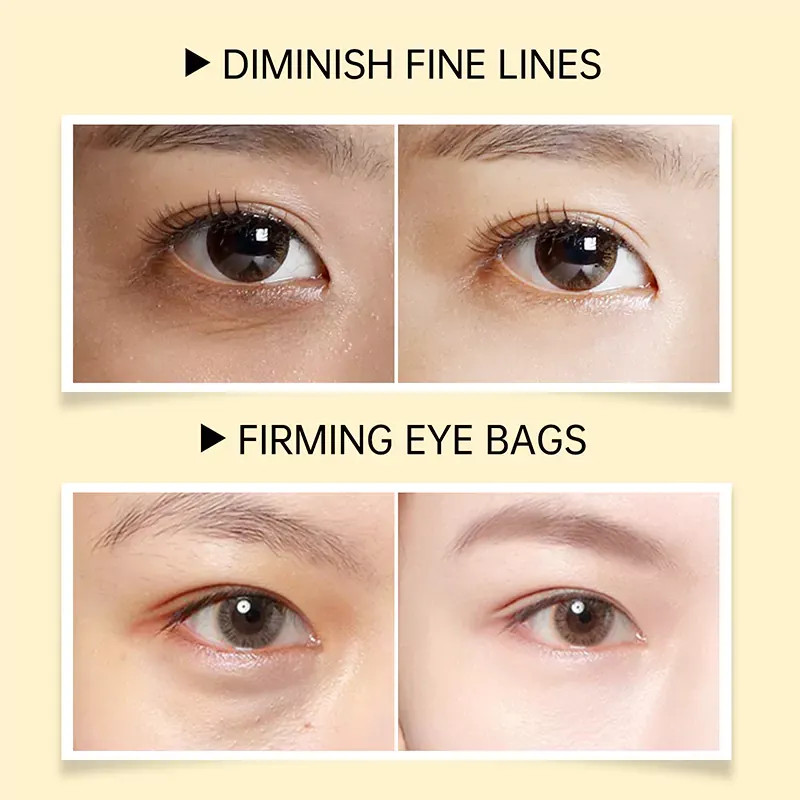Introduction
When it comes to maintaining a youthful and vibrant look, the eyes often reveal the first tell-tale signs of aging. Dark circles, puffiness, and fine lines can prematurely age your appearance, making effective eye care an essential part of any skincare routine. Among the myriad of ingredients touted for their rejuvenating properties, Vitamin C stands out as a powerhouse. Not only does it help in brightening the skin, but its antioxidant properties also play a crucial role in combating signs of aging. This article dives into why Vitamin C eye creams are indispensable in your anti-aging arsenal.

Understanding Vitamin C
Vitamin C, also known as ascorbic acid, is a vital nutrient that serves multiple purposes within the body, including the health and maintenance of skin. In the realm of skincare, Vitamin C is celebrated for its potent antioxidant properties. These properties help in neutralizing free radicals, unstable molecules that can cause oxidative stress and accelerate skin aging.
In topical skincare products, Vitamin C works by promoting collagen production and inhibiting melanin formation, which can lead to brighter and more youthful-looking skin. Its ability to enhance skin repair and reduce inflammation makes it especially beneficial for the delicate and often problematic eye area. With consistent use, Vitamin C-infused eye creams can significantly diminish the appearance of fine lines and help in reducing the severity of dark circles, making them a go-to choice for those seeking to preserve a youthful gaze.
The Aging Eye
The skin around the eyes is notably thinner and more delicate than the rest of the face, making it more susceptible to the visible signs of aging. As we age, this area can lose elasticity and firmness, leading to the development of fine lines and wrinkles, often referred to as “crow’s feet.” Additionally, factors like fatigue, dehydration, and overexposure to sunlight can exacerbate the appearance of dark circles and puffiness, contributing to a tired and aged look.
Understanding the structural and functional changes that occur in the skin with age is crucial. Collagen, the protein responsible for skin elasticity, diminishes, and the skin’s ability to repair itself slows down over time. These changes underscore the need for targeted skincare treatments that can replenish nutrients and support the skin’s regenerative processes. Vitamin C, with its proven ability to stimulate collagen production and enhance skin repair, is particularly effective in addressing these age-related issues in the eye area.

Role of Vitamin C in Anti-Aging
Vitamin C is not just a basic nutrient; it plays a multifaceted role in skin health, particularly when it comes to anti-aging. Its primary mechanism involves the synthesis of collagen, a vital structural protein that helps maintain skin elasticity and firmness. As we age, the natural production of collagen decreases, leading to the formation of wrinkles and sagging skin. By promoting collagen formation, Vitamin C helps reinforce skin’s structural integrity, reducing the visibility of fine lines and maintaining a smoother, more youthful complexion around the eyes.
Moreover, Vitamin C is a potent antioxidant, meaning it helps protect the skin from the damaging effects of UV radiation and environmental pollutants. Exposure to these elements generates free radicals, which are unstable molecules that can damage cells, including skin cells. By neutralizing these free radicals, Vitamin C eye creams not only prevent further damage but also aid in the repair of existing damage. This is particularly important for the under-eye area, which is often the first to show signs of environmental stress.
Additionally, Vitamin C has been shown to improve skin tone by reducing the pigmentation caused by overexposure to the sun. It inhibits the enzyme tyrosinase, which is responsible for converting tyrosine into melanin, the pigment that colors the skin. This action helps lighten dark circles under the eyes, contributing to a more even and radiant skin tone.
Given its comprehensive benefits, incorporating a Vitamin C eye cream into your daily skincare routine can significantly enhance the skin’s appearance, making it appear brighter and more youthful. This is especially vital in the fight against the early signs of aging, providing both preventative and corrective solutions to common eye-area concerns. Next, we’ll compare Vitamin C to other popular ingredients in eye creams, helping you understand why it might be the best choice for your anti-aging needs.

Comparative Analysis of Eye Cream Ingredients
When selecting an eye cream, it’s essential to consider the active ingredients and how they target specific skin concerns. Vitamin C is often compared to other popular ingredients like Retinol and Hyaluronic Acid, each known for its unique benefits in skincare. Understanding these differences can help you make an informed choice about what’s best for your skin type and concerns.
Retinol, a derivative of Vitamin A, is widely acclaimed for its potent anti-aging properties. It works by accelerating skin renewal, enhancing collagen production, and reducing the appearance of fine lines and wrinkles. However, Retinol can be harsh on the sensitive eye area, potentially causing irritation and dryness, particularly in those with sensitive skin.
Hyaluronic Acid is celebrated for its hydrating properties. It has the ability to retain moisture up to 1000 times its weight in water, making it a superb ingredient for plumping the skin and reducing the visibility of fine lines. While extremely effective for hydration, it does not directly contribute to skin repair or protect against environmental damage like Vitamin C does.
In contrast, Vitamin C offers a comprehensive approach. Not only does it help with collagen production and skin brightening, but it also provides antioxidant protection. This makes it particularly valuable for those looking to address multiple signs of aging simultaneously. Vitamin C is generally well-tolerated by most skin types and is effective in managing early signs of aging without the irritation often associated with stronger actives like Retinol.
Moreover, many eye creams will combine these ingredients, but the synergy of Vitamin C with either of these components can enhance the overall effectiveness. For example, pairing Vitamin C with Hyaluronic Acid can provide both immediate hydration and long-term anti-aging benefits, while using it alongside a lower concentration of Retinol can help boost skin renewal with reduced risk of irritation.
Choosing the right eye cream often comes down to understanding your skin’s needs and how different ingredients can meet those needs. Vitamin C stands out as a versatile and gentle option, suitable for almost any regimen focused on maintaining youthful skin around the eyes.

User Experiences and Testimonials
Real-life experiences and testimonials play a crucial role in understanding the effectiveness of any skincare product. Vitamin C eye creams are no exception, with numerous users reporting significant improvements in the appearance of their eye area. These stories often highlight reduced dark circles, diminished fine lines, and an overall brighter, more youthful look.
Julia, a 42-year-old marketing professional, shared, “After using a Vitamin C eye cream for three months, I noticed a remarkable difference in the brightness and texture of my skin under my eyes. The dark circles have lightened, and the fine lines are less noticeable.” Such feedback is common among long-term users of Vitamin C eye creams, suggesting that consistent use is key to achieving the best results.
Testimonials often point to increased skin resilience and a decrease in the need for heavy concealers or makeup to cover imperfections. This not only boosts confidence but also indicates the long-term skin health benefits of incorporating Vitamin C into your daily skincare routine.
Choosing the Right Vitamin C Eye Cream
Selecting the right Vitamin C eye cream involves more than just opting for a product with Vitamin C in its list of ingredients. It’s important to consider the form of Vitamin C used, as some derivatives are more stable and effective than others. Ascorbic acid is the most potent form of Vitamin C, but it can be less stable and more irritating to sensitive skin. Other derivatives like magnesium ascorbyl phosphate or ascorbyl palmitate might be more suitable for those with sensitive skin due to their more stable and gentle nature.
Additionally, the concentration of Vitamin C is crucial. A concentration of 10-20% is typically effective, though products with lower concentrations can also be beneficial, especially for those with sensitive skin or those new to Vitamin C products. It’s also beneficial to look for products that contain complementary ingredients such as Vitamin E or ferulic acid, which can stabilize Vitamin C and enhance its effectiveness.
Finally, consider the packaging of the product. Vitamin C can degrade and lose its potency when exposed to light or air, so eye creams packaged in air-tight and opaque containers are usually preferable to ensure the longevity and efficacy of the product.

Conclusion
Vitamin C eye creams are a powerhouse in the world of anti-aging skincare. Their ability to boost collagen production, coupled with antioxidant protection and skin brightening effects, makes them an essential element of any skincare routine aimed at maintaining youthful and vibrant skin around the eyes. By choosing the right product and using it consistently as part of your daily skincare regimen, you can significantly enhance the appearance and health of your skin. Embrace the power of Vitamin C and let your eyes reflect your inner youth and vitality.
To explore a range of high-quality Vitamin C eye creams that can transform your skincare routine, visit Bonnie & Co Beauty. Whether you’re new to eye creams or looking to switch to a product that offers both anti-aging benefits and gentle care, Bonnie & Co Beauty has something to meet your needs. Start your journey towards brighter, more youthful eyes today!



